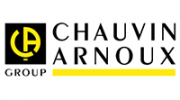Energy Efficiency: The Transition is Underway
Historically associated with crisis contexts (1973 oil shock, Gulf War, recent Russo-Ukrainian war...), energy management is initially perceived in our society as a constraint on our way of life, a form of restriction. Mastering energy would mean having to control its production, choose the sources of supply and the most appropriate type of energy, as well as control its use in various consuming sectors.

However, energy suppliers have never been in better shape than in recent years when resources are depleting, oil prices soar, and gas bills reach new heights. A bill that, for the average consumer, can sometimes double with the same usage. "Energy management" is now better understood and transitions from the negative status of imposed individual rationing to a more honorable position of necessity and societal commitment. Once secondary in the concerns of policymakers, it is now at the forefront of the global economic stage and gains full legitimacy as long as it is embraced by society. This involves consuming less energy, energy sobriety that comes through behavior change.
Energy management is now the subject of a renewed approach, involving new territorial actors, better integration into the strategies of administrations, businesses, and the behaviors of individuals, and a refocusing of current policies. France has set an ambitious announced target: carbon neutrality by 2050. This involves cutting its energy consumption in half and mobilizing everyone.
This means reconsidering all sources of greenhouse gases and moving away from fossil fuels such as oil, gas, or coal, which were growth factors in the glorious years in the transport, building, and industrial sectors. It also involves avoiding Europe's dependence on hydrocarbon producers, combating administrative delays (it takes a minimum of 5 years to obtain a permit for a photovoltaic park and 7 years for a wind park), doubling renewable energy (RE) production, and promoting a return to nuclear power, which is the least carbon-intensive energy source (4 g/kWh). Would energy sobriety (traveling less, heating less, combating waste...) coupled with better energy efficiency and a balanced energy mix be part of the solution?
Aware of the future challenges in controlling polluting energies, the need to promote RE, and contribute to reducing energy costs, the Chauvin Arnoux group and its subsidiaries (Pyrocontrole, CA Energy, Manumesure) continue to develop counting devices, supply quality analyzers, energy loss control, power regulators, installation controllers, solutions in renewable energies, and more.














